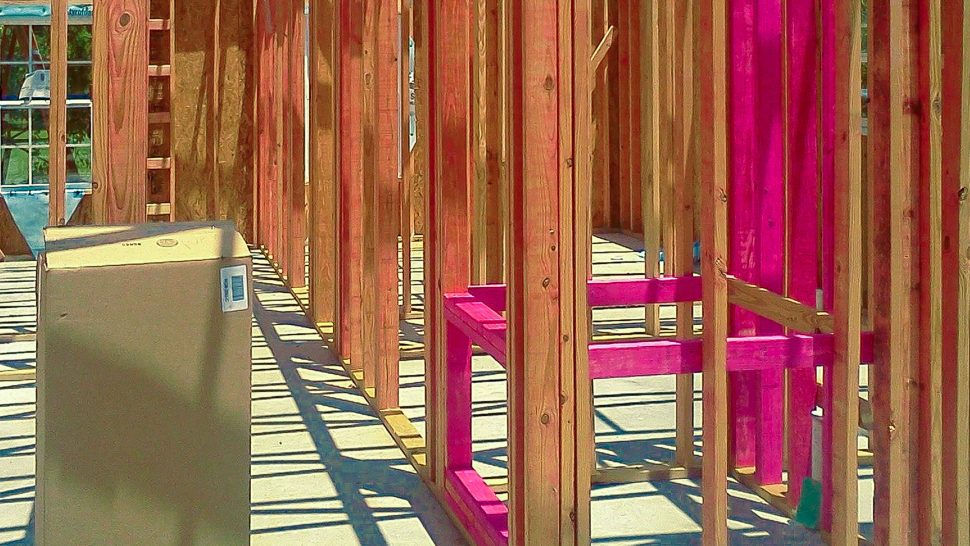The destruction from a flood can be devastating and impact your life, finances and well-being for months, and in some cases, years after the disaster. During this time, it can be near impossible to sit down and figure out the best way to get your home rebuilt. How can you choose a contractor after a flood if you’re thinking about everything else going on?
Unfortunately, there are several people out there looking to take advantage of people when they are most vulnerable. Some contractors will go door-to-door offering inspections and cheap work, and many of them are looking to make a quick buck doing subpar work that will cost you thousands of dollars redoing the work later. Without being prepared, you could end up in a seemingly never-ending battle and debt. Here are some tips to help you choose the right contractor after a flood:
Interview several repair companies before signing a contract.
Don’t talk with only one repair company for your home repairs, and don’t assume someone you know or a close family friend won’t charge more. Interviewing several repair companies will ensure that you’re getting a good deal, and it gives you a chance to see which company is a good fit for your needs. It’s not a good idea to sign a contract with the first company you come across.
Ask the repair companies for proof of insurance, references and licenses and check them.
Any legitimate company would be happy to honor your request. If a contractor gives excuses or blatantly refuses to provide any of these types of documentation, you should be extremely cautious of them. That’s a huge red flag that may mean that the company is not fully certified and may be trying to pull a fast one over on you. When in doubt, do your due diligence on the companies and use your local contractor licensing board to search for contractor licenses.
Check the paperwork you see thoroughly. Some people will Photoshop their certificates and licenses, and it can be difficult to tell if their paperwork has been tampered with at first glance. Take some time and give each document a look-over. Here’s how you can tell if something has been forged:
- Parts of the document look out of place or seem to be different colors.
- Some text or images appear blurry.
- Faint watermarks can be on top of the entire document.
- The documents are not printed on heavier paper. Official documents are printed on a heavier paperweight.
When interviewing contractor references, you should go armed with a list of questions. Angie’s List has put together a list of questions to ask contractor references. This gets you started with some talking points, and the references will give you an idea of what you should expect in terms of the work that will be delivered.
Compare the amount of time the companies have been in business.
Look for an established company that can provide evidence of quality work. If a company has been in business for multiple years using the same name, it’s normally a good sign of the company’s reputability.
Check for complaints.
Use the Better Business Bureau (BBB) and your state’s licensing board for contractors database to see if complaints have been filed against the company in the past. If a company has no formal complaints, do not assume that their work is high quality. Search for the company’s social networks (especially Facebook) and Angie’s List to see what people may be saying in other places.
When looking at reviews online, check to see how the company is responding to and handling the complaints. If they’re making an effort to better a situation or correct an issue, you can feel safe knowing that they will do their best to take care of you.
Ask for written estimates.
Make sure the estimates are detailed and list out all the work that needs to be done. This will save you from headaches as the project goes on. There should be no question as to what will be completed by the company.
Compare estimates side by side.
Carefully compare estimates to make sure each repair company is charging for the same work. The lowest price may not be the best deal. Take a look at which materials they plan on using. Make sure that you approve of the quality of the materials they are using for the price you’re potentially paying.
Make sure the repair company gives an estimated time of completion in writing.
A company that has done this before can confidently give an estimated time for the project to be completed. If they refuse to give a time, that could be a sign that they are inexperienced and may not do the project in a timely manner. Remember that the completion date could get extended for reasons out of the company’s control, such as the weather.
Avoid companies that want on-the-spot cash payments.
An established contractor will not ask for a large percentage up front and some contractors are willing to negotiate down payments. According to FEMA, the safest route is to write a check to the repair company, not an individual.
According to the Attorney General, a reasonable down payment is no more than 10% of the total project cost and should be paid upon delivery of materials. If a contractor is price gouging, has no license or requires high down payments, don’t hesitate to report them. You can file a complaint on your state’s contractor licensing board.
By following these tips, you’ll have no problem choosing the right contractor after a flood.
Article reviewed by Labarre Associates and our Nationally Certified Credit Counselors.
Once a Pelican State CU member, always a member—through life’s milestones, we’ll always be there to help you with your financial needs. Your Financial Family for Life. Give us a call at 800-351-4877.



